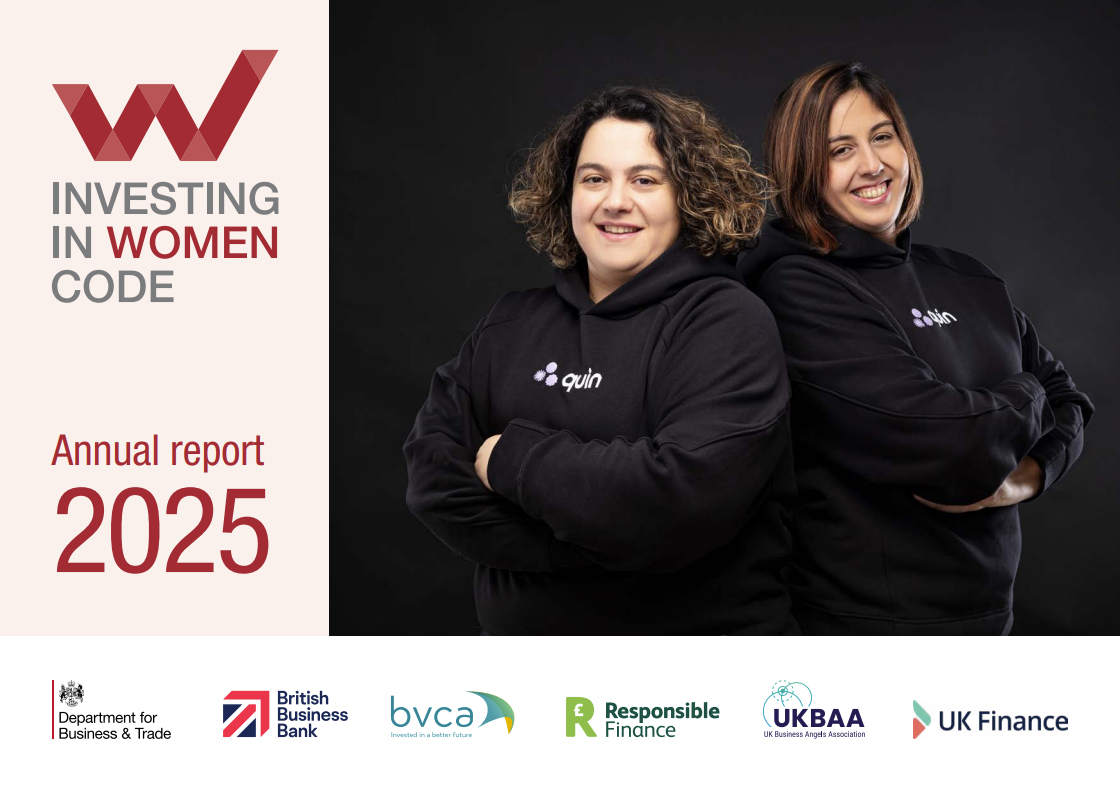The Rose Review
The Alison Rose Review of Female Entrepreneurship was published on 8 March 2019. The report highlighted the difficulties that female entrepreneurs face when accessing finance and exposed the gender gap in investment. On average, female-led businesses receive less funding than those headed by men at every stage of their entrepreneurial journey. The finding that only 1% of venture capital funding goes to businesses founded by all-female teams is a stark reminder of how far we have to go.
Since publication, there has been a strong commitment from across the industry to implement the recommendations, reinforced by the government’s ambition to increase the number of female entrepreneurs by half by 2030. The goal of the Rose Review is to tap the huge unrealised economic potential of female entrepreneurs by making the UK one of the best countries in the world for women to start and grow a new business. Up to £250 billion of new value could be added to the UK economy if women started and scaled new businesses at the same rate as UK men.
Learn more about the Rose Review and some of its outcomes:
- Further information on the Rose Review
- The first annual Investing in Women Code report (.PDF, 698KB)
- The second annual Investing in Women Code report (.PDF, 8.93 MB)(Opens in new window)
- The third annual Investing in Women Code report (.PDF, 2.65 MB)(Opens in new window)
- The forth annual Investing in Women Code report (.PDF, 4.21 MB)(Opens in new window)
- The fifth annual Investing in Women Code report (.PDF, 2.88 MB)(Opens in new window)
- The Council for Investing in Female Entrepreneurs Invest in Women Hub
- Finding What Works: Pathways to Improve Diversity in Venture Capital Investment
Angel investment
In signing the Code, an organisation commits to adopting practices and further action that aims to improve female entrepreneurs’ access to the tools, resources and finance they need to grow their businesses, working with relevant players in the ecosystem, and review these practices annually. The Code does not make recommendations about these actions, since each signatory will need to act in a way that fits with their organisation’s activities, capacity, current situation, and future aspirations.
Whether you are new to investing or an experienced investor, we’ve brought together some industry-leading guides and templates from across the angel ecosystem that will outline the merits of investing in diversity and enable you to deploy your capital more effectively to help improve the landscape for female entrepreneurs.
Learn more about Angel investment:
- The UK Business Angel Market (.PDF, 2.95 MB)
- UKBAA’s Angel Investment in Diversity Best Practice Guidance (.PDF, 8,393.KB)
Venture Capital investment
DBT and partner organisations recognise that there is already invaluable work across the VC industry aimed at tackling the barriers and challenges faced by female entrepreneurs, and rather than duplicating these efforts, seeks to promote those initiatives across the industry to raise awareness. Learn more about Venture Capital:
- Diversity VC’s Toolkit
- The Diversity VC Standard (in association with Diversio and OneTech)
- Diversity VC and Atomico's Diversity & Inclusion in Tech Guidebook
- BVCA and Level 20 Diversity and Inclusion survey 2021 (.PDF, 1,022KB): the resources section of this report includes a useful comparison tool
- British Business Bank, Diversity VC and BVCA’s 2019 ‘UK VC & Female Founders’ report
- Diversity VC's 2019 Venturing into Diversity & Inclusion report
- Landscape helps founders better navigate the fundraising ecosystem. Share your investor experiences and help future founders in their fundraising journey at landscape.vc
- ESG_VC is a response by the venture capital industry to the urgent social, environmental and economic challenges that are increasingly impacting early-stage businesses. Find out more ESG_VC here.
- Investing in Ethnic Minority Entrepreneurs Report, download report (.pdf, 1mb) | download report (.odf, 338kb)
Data protection
Signatories of the Investing in Women Code are required to provide data to the Department for Business and Trade (DBT) relating to their lending data, activities, staff and leadership team. DBT will share this information with nominated industry bodies, including British Business Bank, solely for the purpose of producing the annual Investing in Women Code report.
This data is subject to General Data Protection Regulation.

Investing in Women Report 2025
The 2025 Investing in Women Code report shows the importance of data collection to establish the true picture of access to finance for women-led businesses.
Investing in women code
Sign Up
Become a signatory to the Investing in Women Code
Sign-Up to the Investing in Women Code